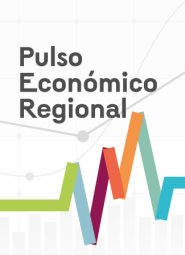Documentos de Trabajo Sobre Economía Regional y Urbana - Education, Gender, and Labor Informality in Urban Areas of Colombia
The series Documentos de trabajo sobre economía regional y urbana (only in Spanish, Working Papers on Regional and Urban Economics) is a publication of Banco de la República in Cartagena. The opinions contained in this document are the sole responsibility of the authors and do not commit Banco de la República or its Board of Directors.
The series Documentos de trabajo sobre economía regional y urbana (only in Spanish, Working Papers on Regional and Urban Economics) is a publication of Banco de la República in Cartagena. The opinions contained in this document are the sole responsibility of the authors and do not commit Banco de la República or its Board of Directors.
Abstract
This paper examines urban labor informality in Colombia, highlighting its relationship with educational attainment, gender inequalities, and regional disparities. Using data from the Gran Encuesta Integrada de Hogares (GEIH) for the 23 main metropolitan areas between 2010 and 2023, the probabilities of informality are estimated through a probit model with an endogenous variable, which addresses the relationship between education and labor informality by using an instrumental variable approach. The results show that each additional year of education is associated with a reduction of more than two percentage points in the probability of being informal. The analysis also reveals significant differences between men and women, with a higher incidence of informality among women, particularly in the Caribbean and Pacific regions, which face more precarious economic conditions. Despite improvements in formalization observed in recent years, gender and regional disparities persist, underscoring structural inequality in access to formal employment. These findings underline the importance of implementing public policies that promote employment formalization, reduce gender inequalities, and address regional disparities, fostering labor inclusion in the most affected areas of the country.
Given that education is closely related to other determinants of informal employment, this study models its behavior to assess its impact on informality rates, recognizing that an improvement in the educational level could positively influence productivity and the formalization of employment.





























































